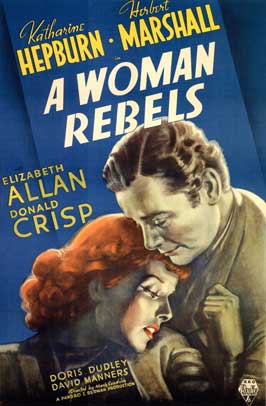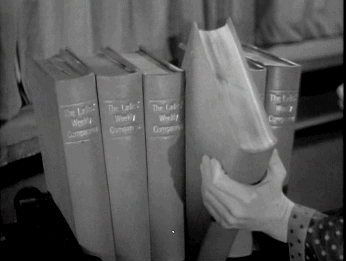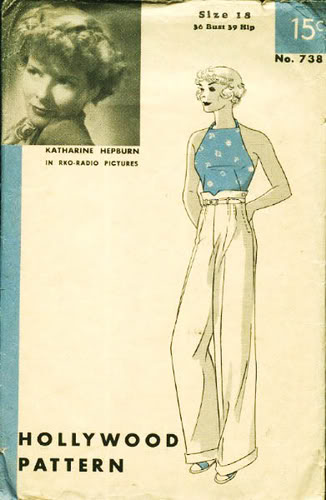A Year With Kate: A Woman Rebels (1936)
 Wednesday, March 12, 2014 at 4:42PM
Wednesday, March 12, 2014 at 4:42PM Episode 11 of 52 wherein Anne Marie screens all of Katharine Hepburn's films in chronological order.
 In which Katharine Hepburn becomes a feminist icon (as if she wasn't already).
In which Katharine Hepburn becomes a feminist icon (as if she wasn't already).
You are all the coolest. Part of the joy of doing A Year With Kate during the many bleak movies these past few weeks (we're so close to the good ones!) has been watching everyone react, especially the repeat commenters. Thanks especially to Dave in Alomitos Beach, who has saved my ass twice with reader suggestions. Last week, when I opined that A Woman Rebels is lousy and I didn't know how to talk about it, Dave hit upon some good points from his computer in Alomitos Beach:
Well, "A Woman Rebels" could be the story of Katharine Hepburn in real life I guess. What WAS going on in her real life? Was this the Howard Hughes years? Or the Leland Hayward years? Who knows... in fact, why DID they insist in putting Katharine in all of these godawful period movies? I'd also like to know why they cast her with all these milquetoast leading men.
Well Dave, I hunted through the many biographies on my ever-growing shrine, Mount Hepburn, to search for your answers...

First, what was going on in Katharine Hepburn's life? Answer: A fair amount. Her mother was pushing harder for a birth control bill after her first defeat in 1934. Katharine Houghton Hepburn was actually amazing, and may have contributed to Kate's decision to play Pamela Thistlewaite in A Woman Rebels. Birth control was definitely something Pamela could have used as a single-mother-turned-magazine-editor-turned-disgraced-woman.
As for whom Kate was seeing, it depends on who you ask. Either she was getting over her agent Leland Hayward, falling hard for the married, alcoholic, Irish Catholic John Ford (sound familiar?), beginning to jet around the country with Howard Hughes, or using all of them as a beard while she dallied with Jane Loring. It really just depends which biography you pick up.
 Next, the question most relevant to A Woman Rebels: why did they insist on putting Katharine Hepburn in all of these godawful period movies? Answer: I don't know. Nobody seems to know. In fact, after viewing A Woman Rebels, one RKO exec is said to have asked the very same question (according to the biography that matches her with John Ford). In 1936, she also did Quality Street and a touring play of Jane Eyre, both of which failed miserably. Even more confusing: while she made these period pieces, her modern woman fashion choices (i.e. her pants) were being marketed as well!
Next, the question most relevant to A Woman Rebels: why did they insist on putting Katharine Hepburn in all of these godawful period movies? Answer: I don't know. Nobody seems to know. In fact, after viewing A Woman Rebels, one RKO exec is said to have asked the very same question (according to the biography that matches her with John Ford). In 1936, she also did Quality Street and a touring play of Jane Eyre, both of which failed miserably. Even more confusing: while she made these period pieces, her modern woman fashion choices (i.e. her pants) were being marketed as well!
The brass at RKO definitely couldn't make up their minds about Kate. Were they trying to recreate Little Women's success over and over again? Were they trying to soften her harder "modern woman" edges? Were they still stuck on this American Garbo idea? Whatever the reason, the result was the same. Of all the period pieces she made for RKO, the only successes were Alice Adams and Little Women. You'd think a studio (or its star) would learn.
As for that last query about her milquetoast leading men, my only comment is this: thank goodness for drunk Irishmen and boys from Bristol.
Now I have a question: What do I write about Quality Street next week?

Previous Weeks: A Bill of Divorcement, Christopher Strong, Morning Glory, Little Women, Spitfire, The Little Minister, Break of Hearts, Alice Adams, Sylvia Scarlett, Mary of Scotland
Next Week: Quality Street - In which Katharine Hepburn is an old maid at 30 and sometimes I hate Old Hollywood.



Reader Comments (7)
I have to admit to a fondness for A Woman Rebels over many of her other pre-Stage Door films. Unlike the ponderous swamp of Mary of Scotland that she had just extracted herself from this film moves at a decent clip. Unlike The Little Minister and Spitfire (Ugh!) her character makes sense and she's not a doormat as she was in Break of Hearts.
The film does have its share of problems but Kate is a strong minded and purposeful protagonist charging ahead like many of her more famous characters carving a place for herself in a man's world. There she is butting heads with her odious father, here she is turning a cozy ladies companion into a call to arms for women's issues all the while rockin' some beautiful Victorian fashions and hiding a "love child". She's also surrounded by a strong supporting cast, Donald Crisp is terrific as her tyrant of a father-a wonderful actor who could play the warmest most kindly men and total dicks like here with complete conviction and the marvelous Lucile Watson playing a character with the fantastic name of Betty Bumble!
Where the casting fails is both of the male leads. I usually like Herbert Marshall he however generates zero chemistry with Kate. The role is partially to blame he's so staunch, bland and long suffering it's would be hard for any actor to make him compelling. But Ronald Colman would have been infinitely better suited to it.
Then there's Van Heflin, an actor whose strong suit was wry detachment cast as a callow gadabout and then a respectable gentlemen. He's just wrong as the first and too young as the second but this was his screen bow so it's not surprising the studio wasn't sure what to do with him. Fortunately he didn't stay long at RKO who never did figure out how to use him effectively. It had been at Kate's request that he was cast after she saw him on stage and after his abortive time at the studio and her box office poison departure back east she selected him to originate the part of Macaulay Connor in the stage version of The Philadelphia Story which landed both of them at MGM and much rosier futures.
In regard to the matter of the milquetoast partners-it was more or less standard to cast a leading man with a genial but not strong, overly distinctive screen persona like Herbert Marshall, George Brent, Douglas Fairbanks, Jr., Franchot Tone etc. against powerhouses like Hepburn, Davis, Shearer and the other queens so that they could pretty much plow right over them and hold that center spot. It was only occasionally that the happy accidents resulted in Tracy/Hepburn or Bogart/Bacall type screen teams.
As far as making some sense of the stodgy mess that is Quality Street and what RKO was doing to her career at that point. Maybe comparing it to roles she could have played in other 1937 movies had she been at liberty to do so-for instance Topper or Night Must Fall.
RE: Quality Street
"Joan Fontaine as Charlotte Parratt (uncredited)"
RE: Herbert Marshall
Despite this film and A Bill of Divorcement, he belonged to Bette (The Letter, The Little Foxes, The Virgin Queen).
joel 6 -- well they're still doing that with strong female stars. They have to have a male co-star who can handle being second-fiddle and a lot of male stars can't.
Great series! I love your take on A Woman Rebels.
The first thing that I notice about Quality Street is that it's by JM Barrie. That must have been a selling point of the time. He had a slew of movies based on his work. He was famous ( Peter Pan) and well connected, and you know how studios love a sure thing, over and over again. "Finding Neverland" was actually a pretty interesting movie about him.
The creating a more popular persona for oneself is also a perennial theme. It's been suggested that Barrie tried to fill in for his deceased older brother. I like it when art lightens and gives comedy to things that are not much fun in real life. The plot description reminds me of the new release The Pretty One with Zoe Kazan. I like it when this theme plays out in film noir, like the various remakes of No Man of Her Own, J'ai Epousee Une Phantome, etc.
Gee, what a shout-out. I feel totally intimidated now. Thanks Anne Marie!
These boring period pieces almost feel like career sabotage against Kate. Could that be possible? A studio more than anything wants to make money, but if they can't, I can imagine they wouldn't mind destroying their most "uppity" actress' career with all this box office busting poison. Just to show everyone else who might get ideas. We're looking at you Bette Davis and Olivia de Havilland.
Was Kate ever popular really in those early years? Did her movies make money? Actually, that's something I'd like to know. What were her boxoffice totals in the 30s and is the box-office poison stuff real? It seems like it must be so because these movies are so dull, but maybe it was made up at the time? Not sure. And I think her later better movies didn't do very well either. Can an actress sink so far in the "goodwill hole" that audiences simply refuse to see her later in better movies?
I love what you say about putting Kate in all this frippery and curls. I can just imagine it's a (wrong headed) idea to soften up her image. Was it because Garbo was so relatively successful in those Camille curls? But the Garbo idea is ridiculous. Hepburn and Garbo are as different as could be. Garbo did so much lying around and swooning in fairly tight closeup, whereas Kate was all athletic action, even in these hoopskirts.
(A lot of this reminds me of the (almost hated on this board) Hilary Swank, i.e. put her in pants and she wins an Oscar, put her in a dress and it's a bomb).
After you review Quality Street, I'd love to get a ranking of all these 30s movies (that should be avoided). Is Spitfire dead last or Break of Hearts or...? And were her string of terrific movies such as Holiday, Bringing Up Baby, Stage Door etc. also planned, or were they just accidents? In other words, does anyone in Hollywood have any idea what they are doing or do they just try everything and see if anything works?
PS and way down the line, can someone tell us why Spencer Tracy is considered the one to save her career i.e. Tracy & Hepburn, when Cary Grant was arguably the one that really made Kate click? And WHY did it take so long for people to get that Kate was at her absolute best with a real sparring partner? Bogie, Grant, Tracy, Lancaster, and later O'Toole, Olivier and even Fonda.
@joel6 - I loved every single word you said. It was all either right out of my own brain or things I hadn't thought of yet that I now completely agree with. I love the commenters on this site.
Thanks, vladdy. I appreciate that.